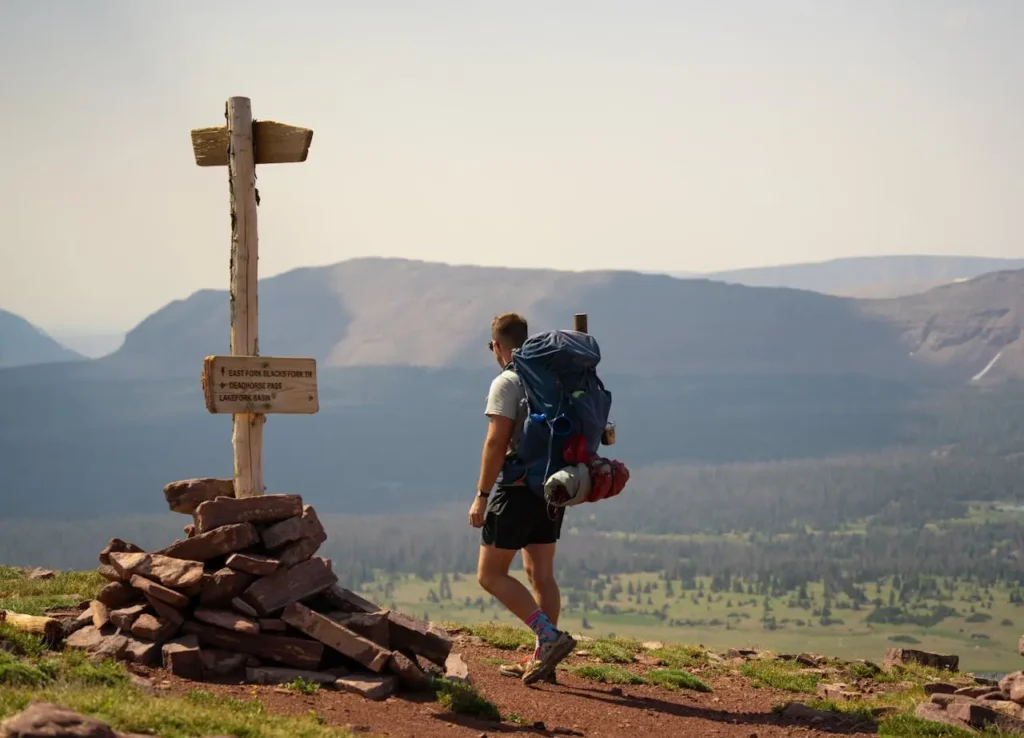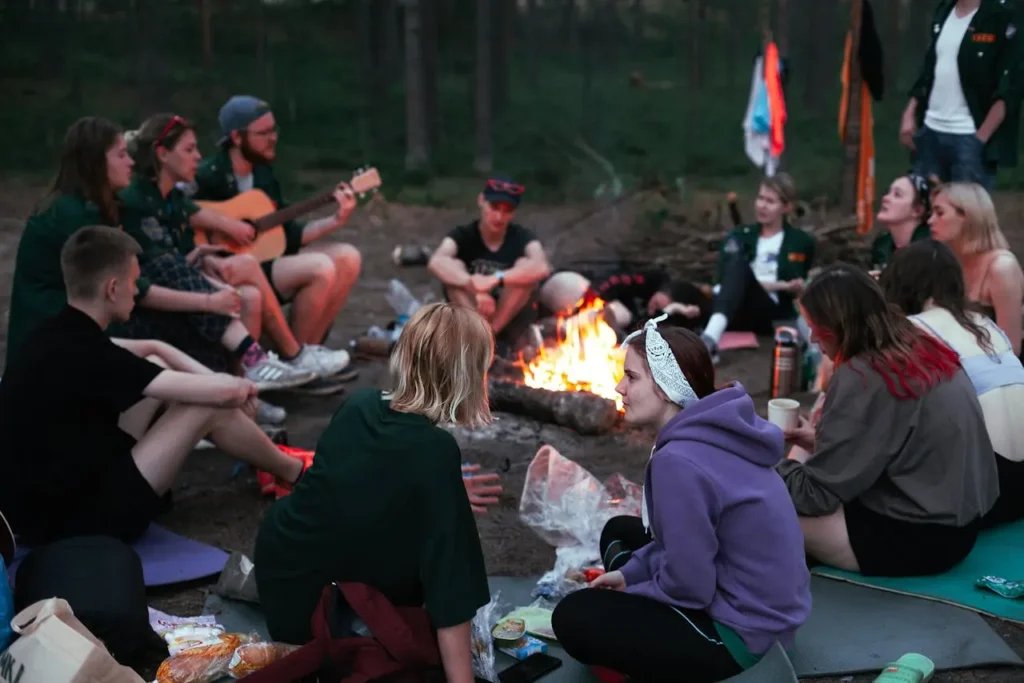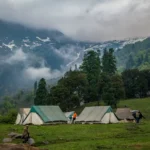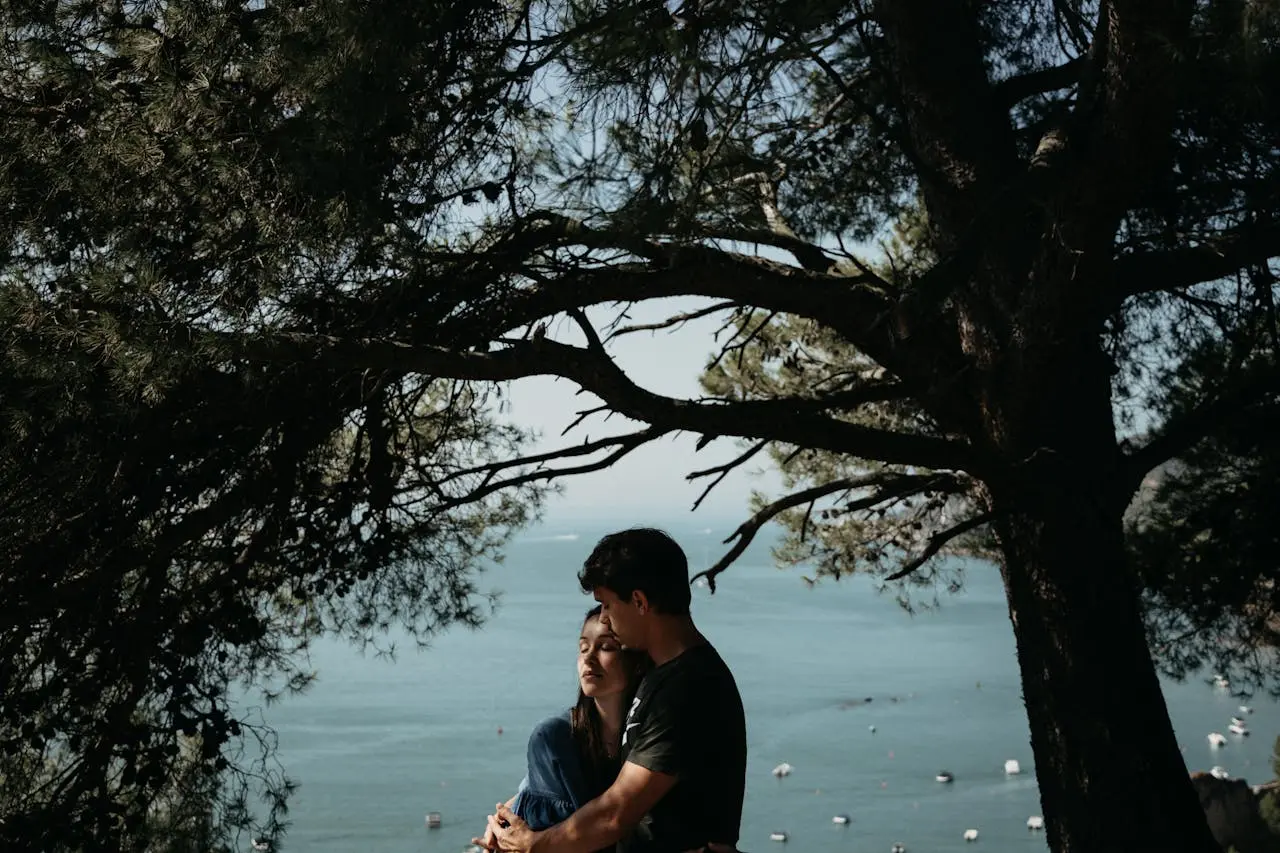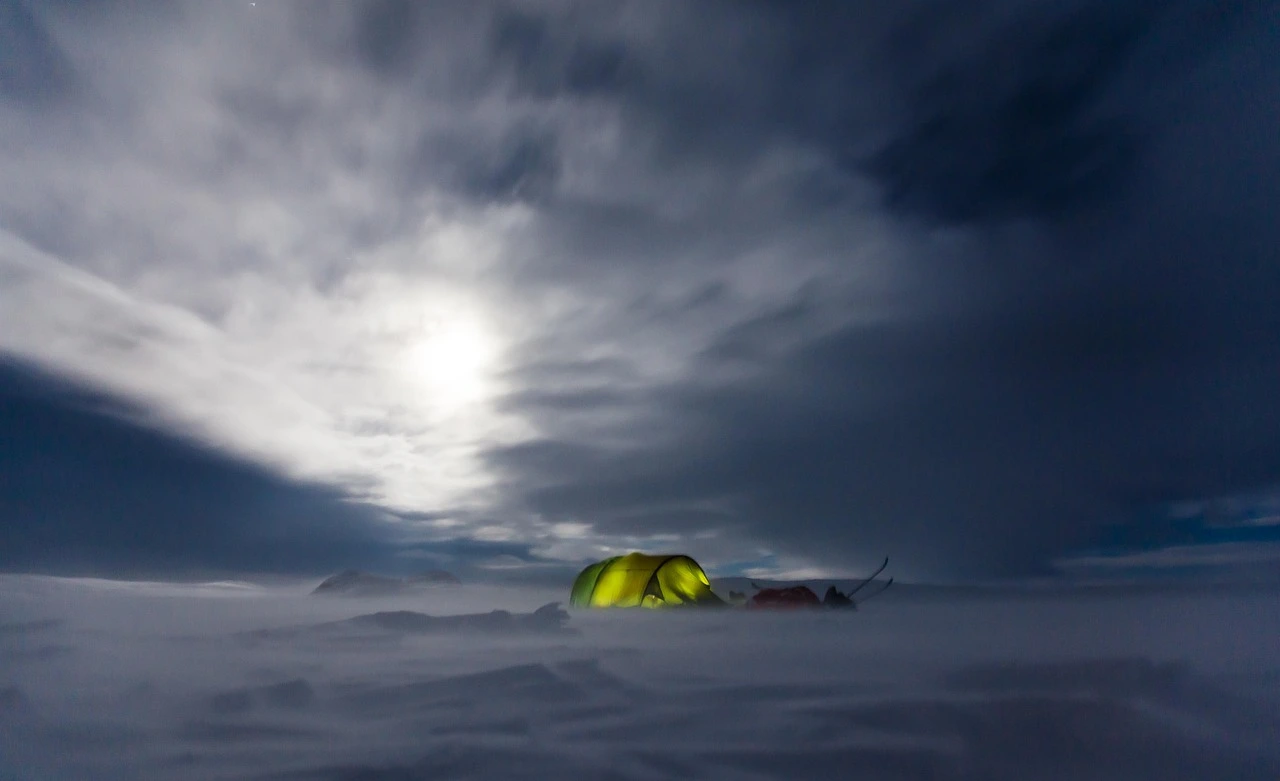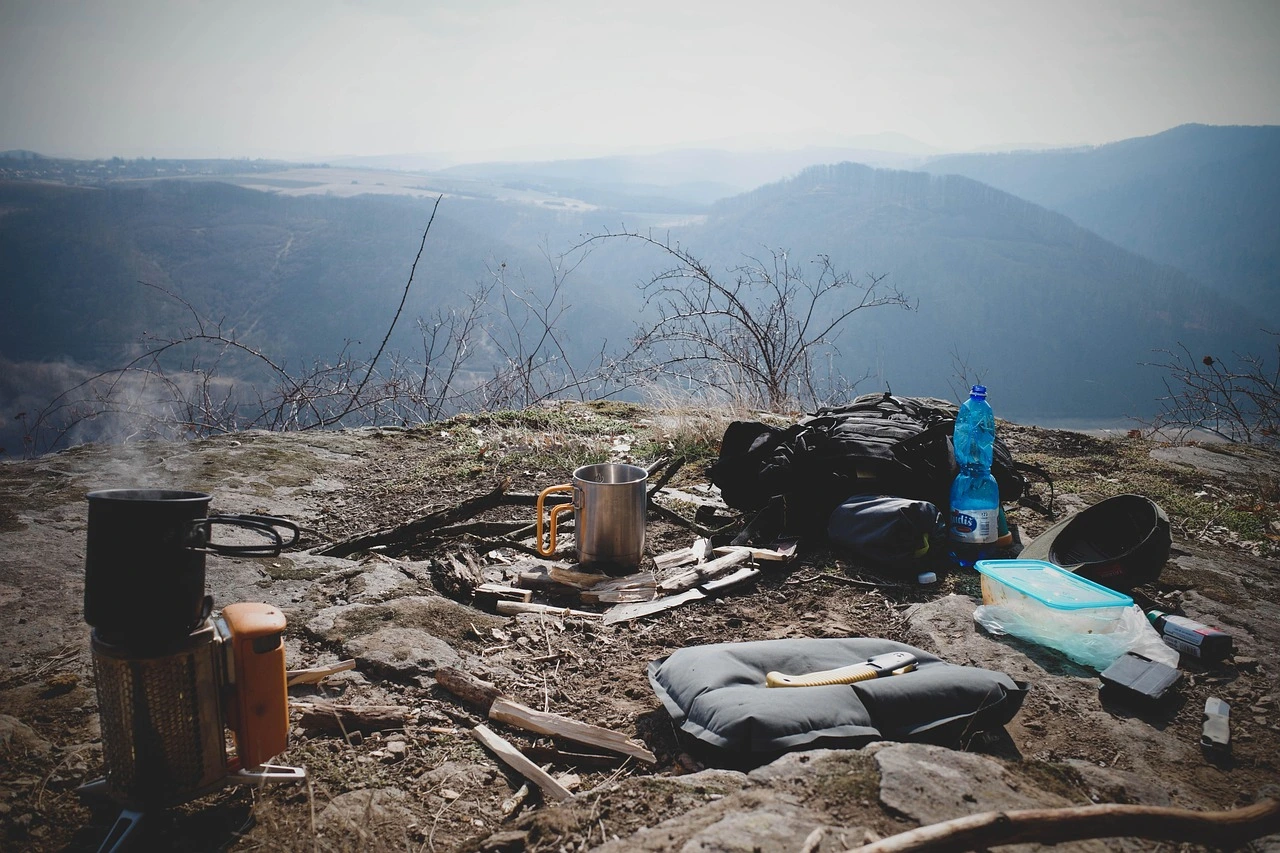Camping is a good way to relax with your family or friends in nature’s environment without worrying about the world. But if you’re a beginner, it might seem too much for you to leave your comfort zone and sleep under the night stars. And before you even start, you’ll first have to get familiar with the basics, so where do you start?
Just because it’s your first time camping doesn’t mean you should be stressed out from planning and preparing. In fact, with the tips shared in this guide on how to start camping as a beginner, you’ll be able to have the best camping experience.
How To Start Camping As A Beginner?
1. Choose Your Camping Style
Before you start your camping trip, you need to have chosen what type of camping you are going for, either car camping or backpacking. Car camping is basically sleeping in a tent with all your essentials in a nearby car, while backpacking is hiking with your gear strapped like a backpack. Both types have their pros and cons, and it all depends on what you want.
Backpacking usually needs some level of experience, but it leads to exploring nature gems, while car camping is easier and more convenient, mostly for beginners. So before you start your trip, you’ll need to check your nearby state parks, forest reserves, and national parks to see what facilities are available.
Since you’re new to camping, it will be a good idea to go with a friend or family member who has some camping experience. This will make it easier for you to learn how to survive outdoors. There’s no right way to do this, but you can go camping with your friends, family, solo, with babies or in an organized group. If you don’t know anyone with camping experience, then you should go for the organized group, cos with them you’ll get professional guides, basic supplies, and new camping friends.
2. Choose Your Camping Location
Choosing the right camping location as a beginner can make your camping trip even better than you planned. But there are so many questions you have to answer before making this decision. Would you rather go somewhere close or far? Do you want a basic campground or a resort campsite? Would you want to go to a campground that has many attractions, or do you prefer a remote campground?
All these will help you make your decisions. But since it’s your first camping trip, it will be best to camp somewhere close to your home. This will make your preparation and planning even easier. And if you forget something important, you can easily go back for it, but for the more adventurous ones, camping far away from home also allows you to explore new places and learn about new cultures.
After making your decision, you’ll need to take into account the camp facilities and accessibility. As a first timer, it’s best to stay somewhere that has accessible restrooms and laundry facilities. Knowing your goals for camping will also help. And most importantly, you’ll need to choose based on the season or temperature, so you’ll get the best camping experience.
No Time To Read? Save Pin!
3. Pack Your Camping Gear
Since it’s your first time camping, you’ll need to know what to bring and how to use it to have the best experience. A camping checklist is the best way to make sure you are organized and you haven’t forgotten anything essential. Regardless of the type of camping, some of the essential camping gear for beginners is:
- Sleeping Gear
As a beginner, you’ll need to bring everything that will make you sleep better at night, like tents, sleeping bags, blankets, an inflatable mattress, sleeping pods, camping pillows, and a camping cot. For the tents, you can choose between a dome, a cabin, a tunnel, or a pop-up tent. While for the sleeping bags, you can either get a mummy or a rectangular bag. If you want to sleep well, you’ll need to bring along your favorite pillows, too, and even an eye mask.
- Campsite Needs
You’ll need lighting gear like headlamps, flashlights, lanterns, and flashlights to keep your campground bright and well lit. And if they are rechargeable, then you’ll need to carry a portable charger or power bank. But if not, then don’t forget to carry extra batteries just in case. You’ll also need a WiFi extender so you’ll be able to stay connected on your phone.
- Necessary Items
You’ll need to bring along toiletries like towels, soap, shampoo, shower shoes, a toothbrush, and toothpaste. This is optional, so if you have the space for it, you can come along with a soft robe and slippers for comfort. And since cleanliness is one of the rules of camping, you’ll need trash bags, paper towels, a cleaning sponge, and wipes.
- Personal Belongings
Your backpack or waistbag should contain your personal items like your wallet, cash, keys, lip balm, ID’s, and any permits you need to camp or hike. You’ll also need your parking passes in case you came with your car.
- Safety Essentials
No matter how safe you plan to be while camping, you’re still in the outdoors, and anything can happen. So the best thing you can do is to carry essential safety items like insect repellent, a water bottle, sunscreen, and a portable fire extinguisher. You’ll also need a simple first aid kit with bandages, gauze, antiseptic cream, scissors, tweezers, and over-the-counter pain meds.
- Kitchen Supplies
If you plan to cook your meals, then you can’t possibly bring your kitchen to the wild, or can you? With good camping cookware, you can get lightweight and durable items to cook and eat your meals. So for your first camping trip, you’ll need a stove, pans, tongs, spatulas, bowls, a lighter, a coffee percolator, dishes, and utensils. Before you get them, make sure your pots and pans can also be used with the open campfire.
- Clothing Essentials
The clothes you’ll need for your camping trip depend on where you’re going, how much you want to pack, and the season. But generally, camping clothes keep you safe from weather conditions, insect bites, and keep you dry. They are usually nylon or polyester materials, which are lightweight and easy to pack. You’ll need essentials like:
- Rain gear such as boots, a water-resistant coat, and an umbrella.
- Light layering pieces like long-sleeve shirts, lightweight tops, underclothes, and jackets.
- Extra socks and underwear.
- A swimsuit
- Sandals or flip flops.
- A sunhat, visor, or beanie.
- Shoes, including hiking boots and comfortable walking sneakers.
- Winter gear like thermal layers, gloves, a scarf, an insulated coat, thick socks, and long pants.
- Optional Items
If you’re going car camping, then you can consider adding styling items like furniture and decorations to part of your gear. You can get camping chairs, a camping table, tablecloths, shade structures, insect repellent candles, bug zappers, and even outdoor rugs.
4. Pack Your Camping Food Items
Food is an important part of any camping trip, and most beginners usually go overboard while packing their food items. To avoid this, you just need to plan your meals and pack the items that will help you make them. This saves time and makes cooking in camp much easier. Regardless of what meals you plan to make, these are the food items you’ll need to pack:
- Cooking Essentials: These are staples like seasoning blends, spices, dried herbs, cooking oils, salt and pepper, condiments, and sauces that will add flavor to your meals.
- Snack Items: Choose non-perishable and dry or frozen camping snacks like trail mix, popcorn, jerky, pretzels, cereal, granola, s’mores, and pre-made salsa.
- Non-perishable food: You’ll need to pack eggs, dried meat, canned beans and soup, canned meat, instant rice, bottled water, juice, and soft drinks.
- Perishable food: To keep you healthy and enjoy nutritious meals, you’ll need fruits, milk, grapes, vegetables, avocados, bacon, and hot dogs.
5. Fun Camping Activities
Just because you’re going camping doesn’t mean you won’t be having fun, cos most campsites have activities to keep you entertained. From hiking to sightseeing, biking, watersports, horseback riding, and rock climbing, you’ll have so many outdoor activities to try out.
You should also be prepared for rainy days and pack fun items like cards, board games, and books. And on bright days, take out time to explore the surrounding areas by climbing trees and watching out for wildlife. Then in the evenings, you can gather with your group around the campfire for storytelling or sing-alongs.
6. Know Your Camping Guidelines
Most campgrounds have rules and regulations put in place for your safety and the safety of other campers. In case you don’t know the rules of your camping site, then you can ask the staff members or call the campground to confirm the necessary details. The general campground rules for campers are:
- Always plan ahead
- Always prepare
- Camp and travel on durable surfaces such as rock, sand, gravel, and dry grasses
- Always dispose of waste in proper containers, or pack out all your waste
- Leave your campsite the way you found it or better if possible
- Minimize camp impact by camping on established campsites and walking only on trails
- Be respectful of wildlife, and never feed or attempt to touch wild animals
- Respect other campers and visitors
Conclusion
Planning your first camping trip might not be easy, but if you know the basics, the essential gear, and what to pack, then you’ll surely have a fun experience. Even if the first time doesn’t go as you planned, it’s just going to add to your memories you’ll tell your kids in years to come.
With this guide, it will be easier to choose your camping location, get the necessary camping gear, pack your food items, and follow the guidelines of your campsite. Safety is also very important, so if you’re camping alone, then always notify someone of your location. Well, go on and start your adventure.



